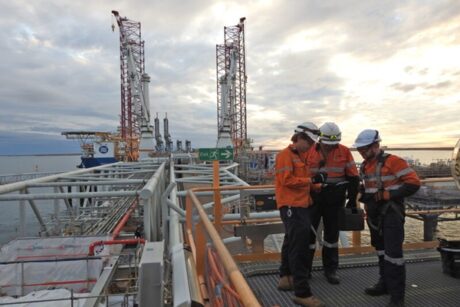1
- Course No E – 1288
- PDH Units 3.00
No data found for Custom Course Number
No data found for Custom Course Units
1
- Course No E – 1288
- PDH Units 3.00
Intended Audience: mechanical, aerospace, electric power, machinery design, engine and electrical machine design, and controls engineers
PDH UNITS: 3
Torque Pulsations in Torsional Vibration
Torsional vibration in machinery trains tends to be poorly presented in much of the literature out there today. Without a fundamental introduction to the topic, it can be a rather daunting subject even for a well-educated engineer. This course developed by Dr. Samuel Doughty, PhD, P.E., is designed to provide that basic understanding.Torsional Vibration in Engineering & Design
Torsional vibration is a vibratory angular motion that exists in almost all machinery where rotating shafts are used. While it is common to think of most machines as running at constant speed and most prime movers (e.g. engines or electric motors) as having a steady torque output, when examined in detail, you'll find that these assumptions are false. Torque pulsations originating in the prime movers and/or in the loads cause small—but often significant—speed irregularities, which is the essence of torsional vibration.Course Details
The online PDH course is designed to provide a solid understanding of a single simple torsional system, which is representative of many machine systems. After completion of the course, you'll be versed in the basic ideas of torsional system modeling, graphic representation, system parameter evaluations, and the computational methods used to determine explicit solutions for torsional vibratory motions. And, most importantly, you'll gain essential insight into the nature of the physical motions of machine systems, particularly the existence of both vibratory and rigid body rotations at the frequencies of the exciting torques.Learning Objectives
At the successful conclusion of this course, you’ll be able to identify and discuss:- The parameters that primarily define the torsional vibrational characteristics of a machine system
- How to represent systems graphically and mathematically using a matrix formulation of the equations of motion
- Fundamentals involved in the evaluation of system parameters and where to go for more detailed modeling information
- Difference between positive definite and positive-semi-definite systems
- Implications of the zero frequency mode in torsional vibrations
- Application of the modal transformation to the torsional vibrations problem
- The types of motions that the resulting solutions indicate for the physical system
- Which terms are associated with each type of motion
- How to calculate natural frequencies and mode shapes for a simple system
- How to calculate the expected response from each excitation frequency
- Both the modal approach and an alternative, "more direct," approach to this problem
Course Reviews
1
1
1 ratings - 5 stars0
- 4 stars0
- 3 stars0
- 2 stars0
- 1 stars1
Once completed, your order and certificate of completion will be available in your profile when you’re logged in to the site.
Ethics Courses
Course No E - 1288
PDH Units 3.00











Figures did not display. Question about rolling response answer 4.3379 did not take into account 9.80 m/sec2 conversion factor. Questions referred to other questions that were not numbered.
Thank you for your feedback.
We’re working to address the quiz question numbers issue.
The figures now display in all browsers.
The rolling response question will be sent to the instructor for review.